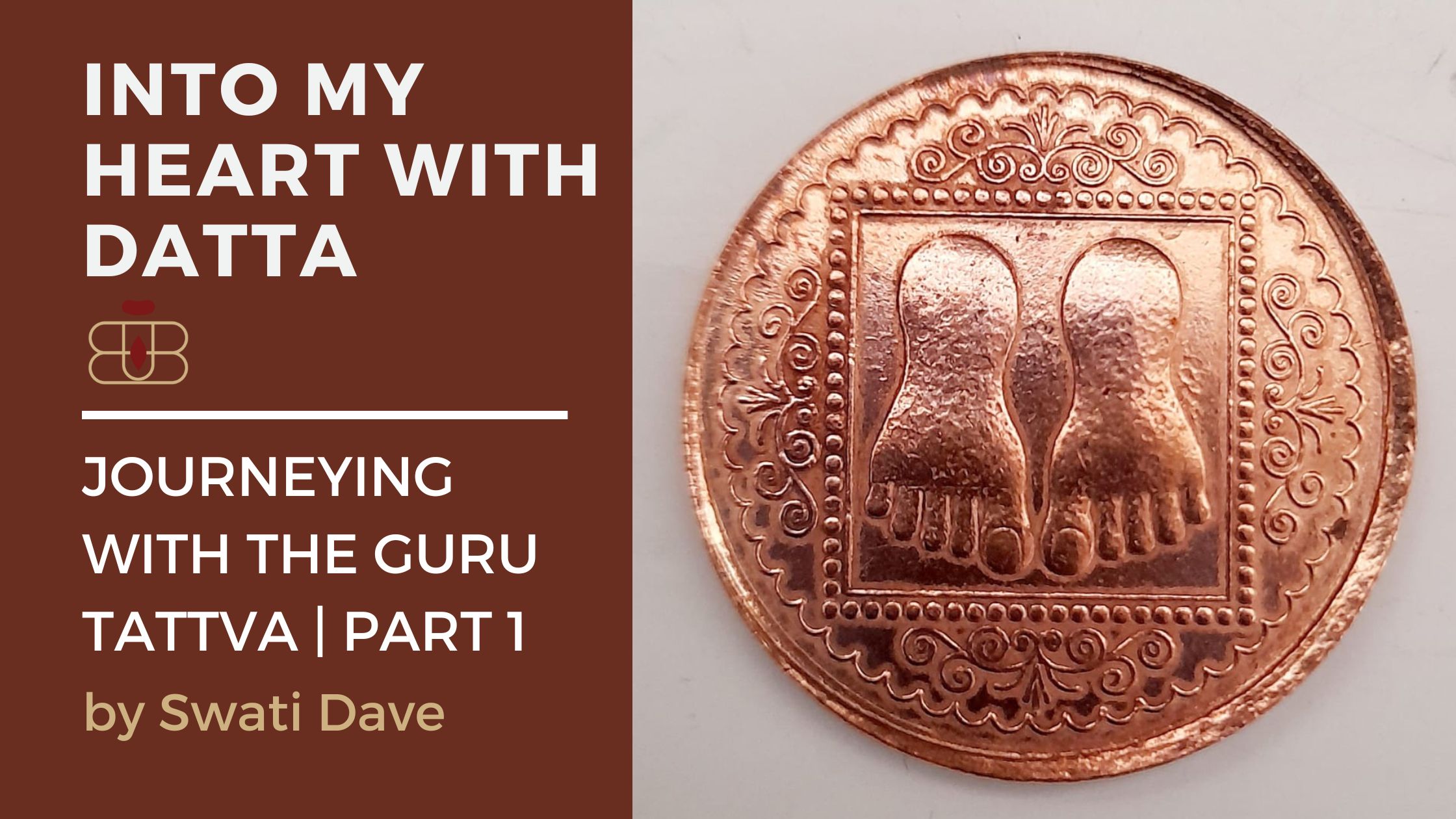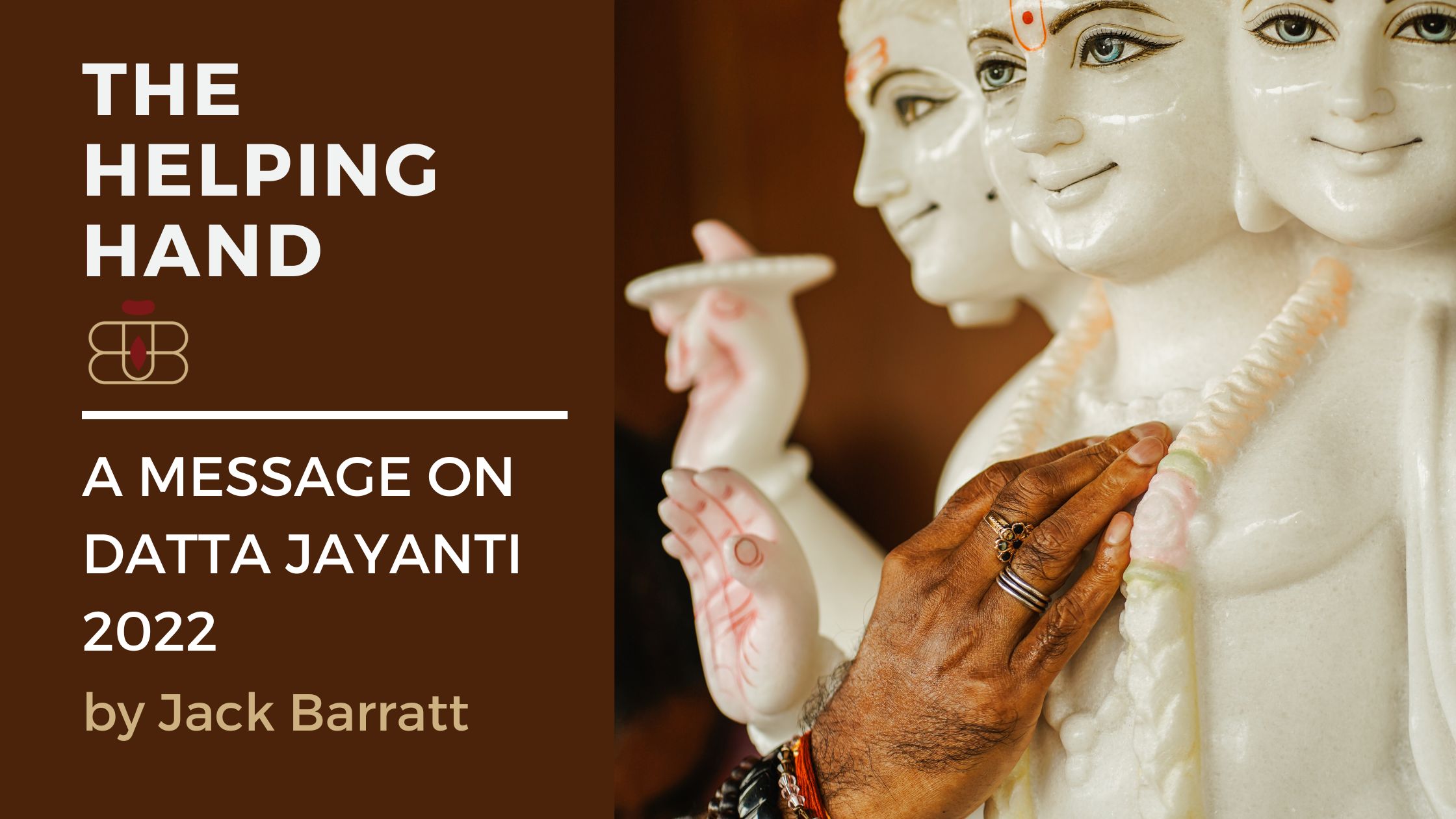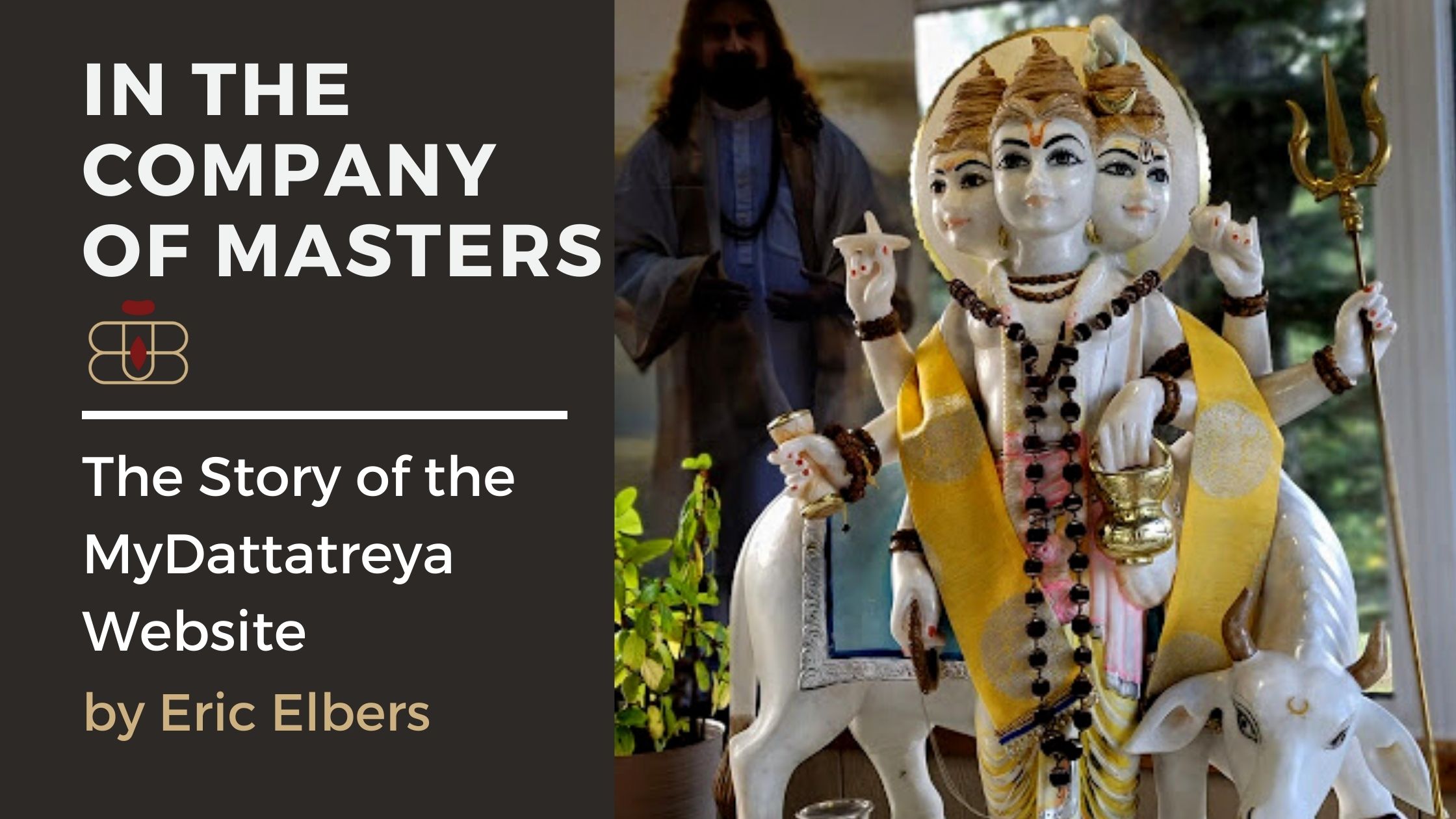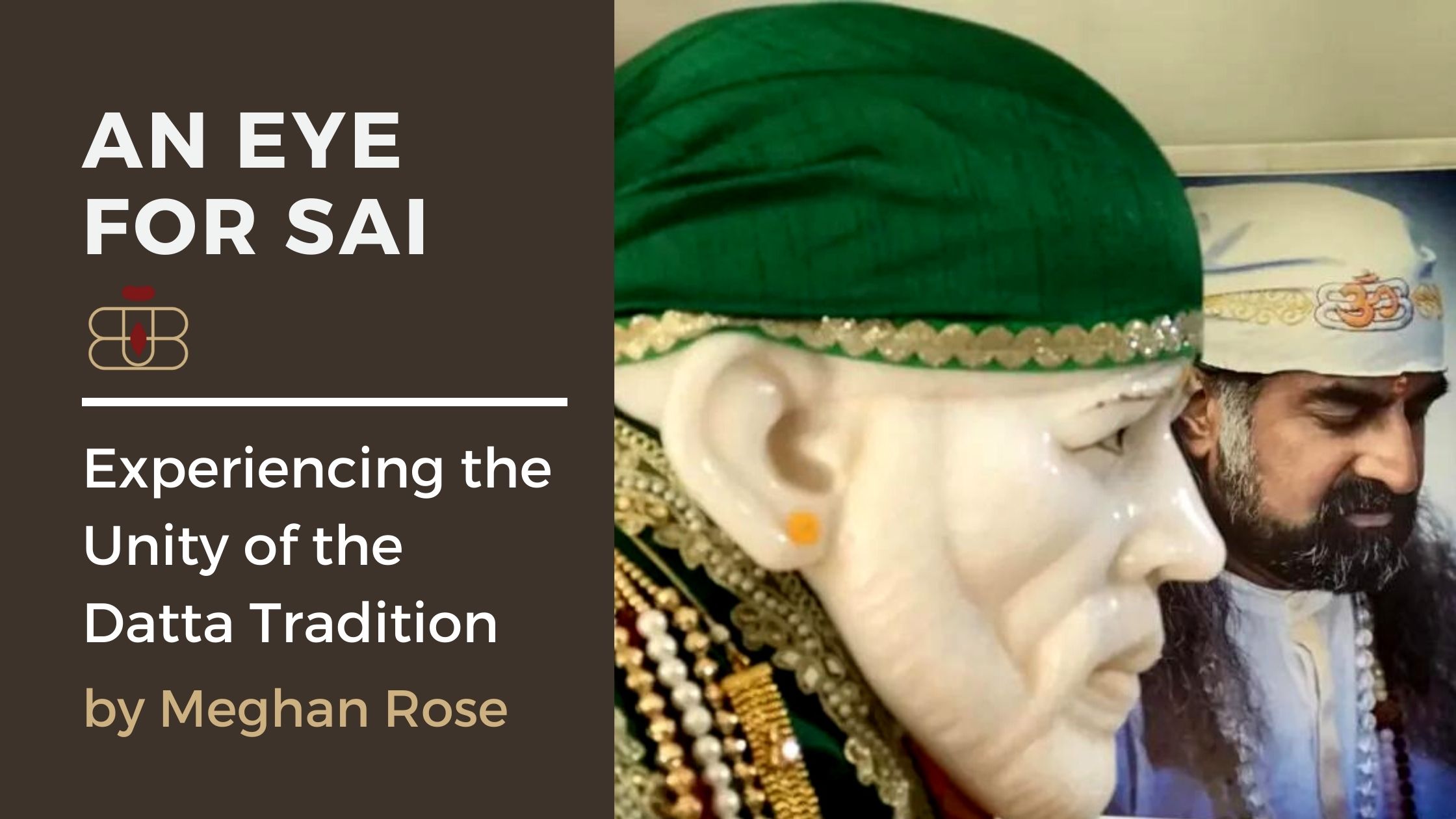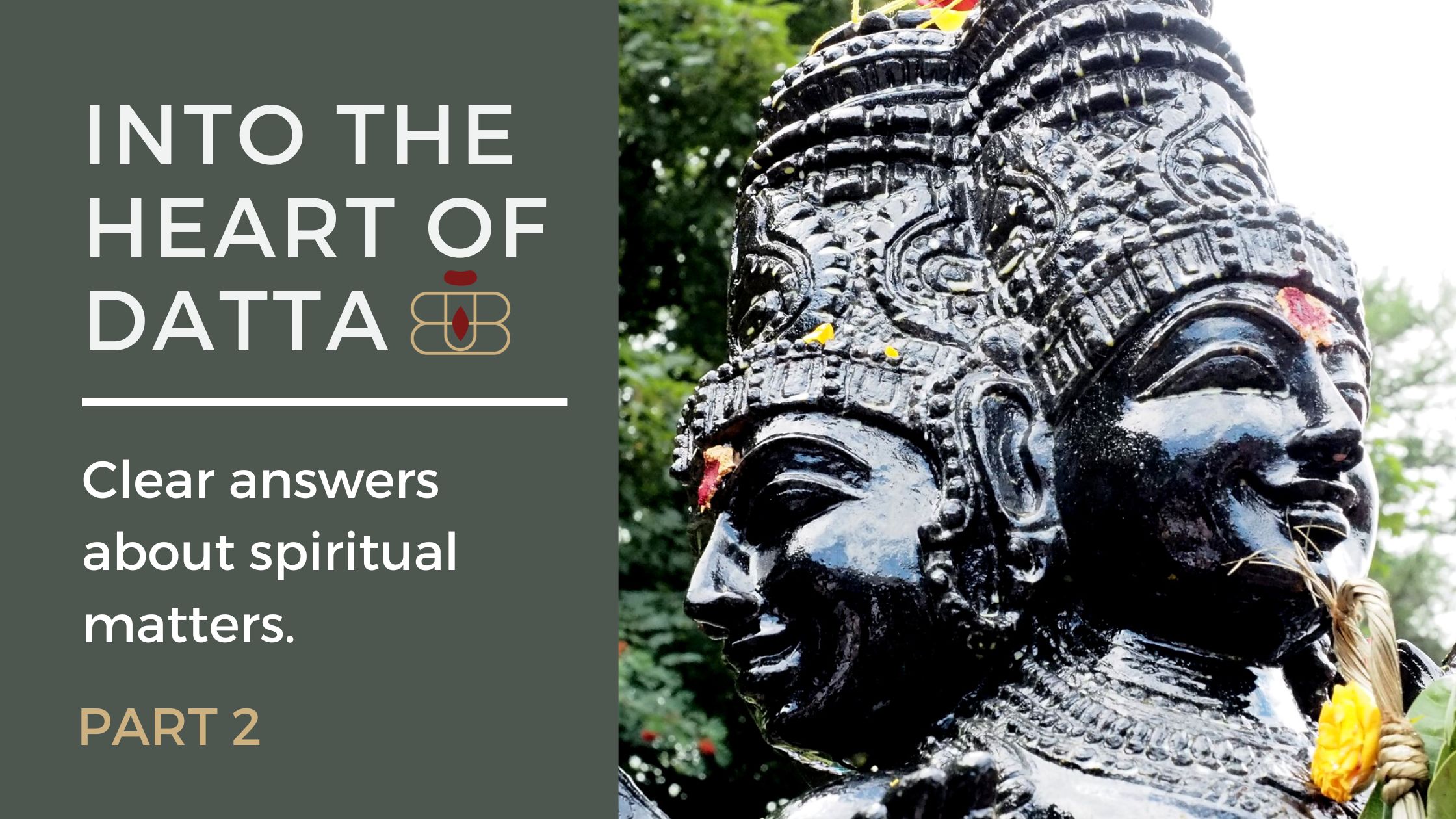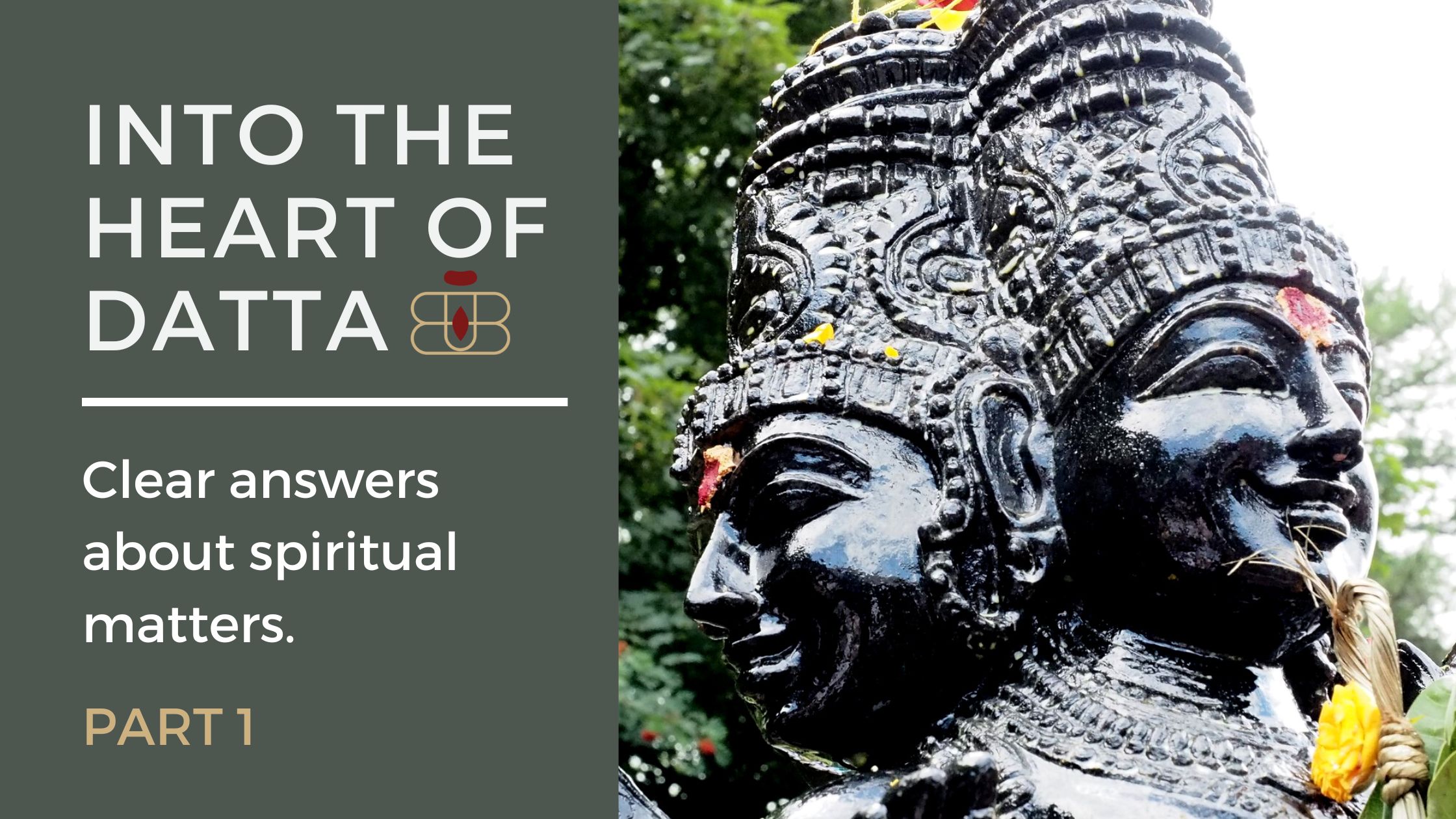Bharatarinath
Overview and Significance
The name of Raja Bhartrihari (or Bhartri) is widely known in India as the name of the king who has renounced his throne to become an ascetic. The dramatic story of his renunciation traditionally was one of the favorite themes of the ballads sung by the wandering minstrels and performed by the folk theaters all over India.
Before his renunciation, he was the king of the Malva Kingdom, with its capital in Avantika (modern Ujjain). He had a younger brother Vikramaditya (Chandragupta second), who ruled after he renounced his throne from 1076 till 1126.
Following some legends circulating amongst Nathas, Raja Bhartrihari was also the brother of Queen Menavati, the mother of another legendary personage of the Natha tradition, Raja Gopichand. Raja Bhartrihari had many wives, but his favorite and most famous wife was Rani (queen) Pingala.
The king was a highly educated person who has written several books in Sanskrit, which are counted as masterpieces of Indian literature. The three most famous are Vairagya Shataka, Niti Shataka, and Shringara Shataka; when combined into one volume, they are called Shatakatraya. Some researchers believe that the work on grammar Vakyapadiya is one more of his books. There are also a few compositions in old Indian dialects ascribed to his authorship.
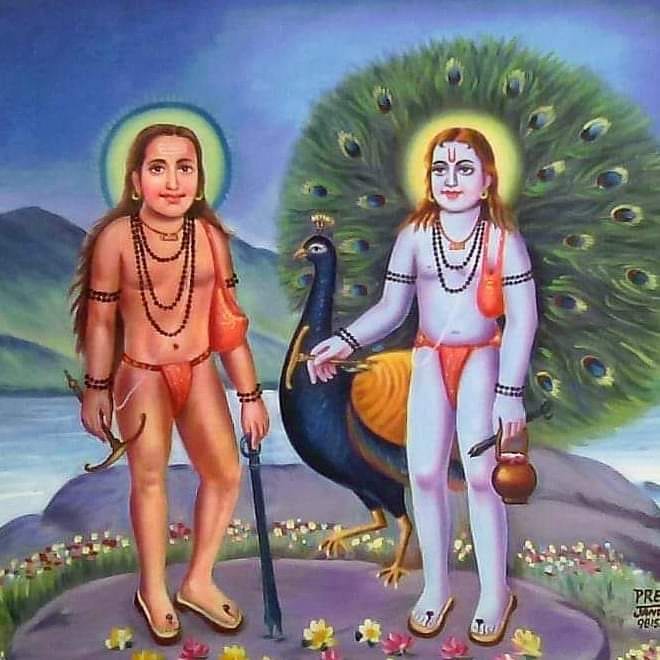
Life History
Legend
Many versions of Bhartriharis’s life story exist, circulating in different formats (as songs, theatrical plays, and books) all over India. However, all of them are based on the two main variants of the story describing the reasons for Bhartrihari’s renunciation; first of them directly connecting it with the influence of the Guru Gorakshanath, while the other two variations, although basically same, differ from each other by sometimes mentioning and sometimes omitting any relations existing between both personalities. The first version, which circulates amongst Nathas and in the form of folk ballads sung by wandering minstrels, can be divided into two parts: one, when Gorakshanath has met Bhartrihari in the jungle, and a second one when he meets him after Bhartrihari’s wife Pingala, has died, and the king was mourning her.
The First Version (Natha) Part One
Gorakshanath was performing his sadhana on the top of Toranmal mountain. At the same time, Raja Bartrihari went to the same area of the jungle to hunt. He killed a male deer near where the yogi was sitting, and Gorakshanath saw what happened. A female deer accompanied the male deer killed by the king, and when Raja wanted to carry off his hunt and tie it to his horse, she was sorrowfully watching from some distance.
The yogi rebuked Raja for what was done by him and told him that he had no right to kill a deer because he is unable to make him alive. On hearing this, the annoyed Raja started arguing with the yogi, after which Gorakshanath revived the deer, which ran away into the jungle.
Raja Bhartrihari was so impressed by the development of events that he expressed his desire to renounce the world and asked the yogi to make him his disciple. Gorakshanath answered that before that, he should go to the palace and ask his wife’s permission to do it. After this, they separated and went their way. Gorakshanath returned to the top of the mountain, while Raja Bhartrihari went to his capital.
Part Two
Bhartrihari was the Raja of the Malwa kingdom with its capital in Ujjain. He was a wise and mighty king who ruled over broad areas, having total authority. It is said that he had as many as one thousand wives. But the one whom he loved most of all was queen Pingala.
Once, the king overheard her saying to one of her attendant women that she loved the king so much that she could not survive his death even for a moment. So he decided to examine how strong her love is, and once, when he went hunting in the jungle, he sent a messenger to the palace with the announcement that a tiger killed him. The messenger brought the king’s clothes drenched in the blood of a recently killed antelope, which he showed to the queen to prove that his words were true. After getting this news, the queen immediately swallowed poison and died. When the king later returned to the palace and found out what had happened, he greatly regretted the mistake and felt totally responsible. He became so overwhelmed with grief that he could not do anything, and all-time was sitting at the cremation ground, mourning the queen’s death. On seeing his suffering, many of his people also became filled with sorrow and joined him in his mourning.
When he was sitting there, he whined, ‘Hey Pingala, hey Pingala, hey Pingala.’
Gorakshanath came near, dropped his earthen pot, and started crying even louder than the king: ‘Hey my earthen pot, hey my earthen pot.‘
When the king, filled with sorrow, noticed him and asked about the reasons for his grief, Gorakshanath told him that he was moaning about his begging bowl.
After the yogi told him about the reasons for his sorrow, the King became greatly ashamed, seeing that all that the yogi was so loudly weeping about was the earthen pot he broke. So he told him: ‘Don’t cry for your earthen pot, and make me sadder, I will give you a hundred new pots better than yours, but please stop crying.‘
However, the yogi didn’t stop and answered with abundant tears dropping from his eyes: ‘No, I don’t want your pots, I want only my old one, which I loved so much.‘ The king replied: ‘What nonsense! Isn’t it impossible to return what has been destroyed?‘ At this, Gorakshanath ceased crying and told him: ‘O wise king! If you know this, then why are you crying here for your Queen, who also has gone forever? Will your crying return her? You have so many more queens, then why do you cry about this one?‘
The king answered that it is not possible to compare love for a queen with love for an earthen pot. Gorakshanath replied, saying that there isn’t much difference between both, be it earthen pot or body of man, because both are made from earth, and what has come from earth one day must return to it. That is the law of nature.
But in the end, he added: ‘Would you be able to recognise your queen who seems so special to you if I were to restore her by my yogic powers?‘ ‘Yes, of course,’ the king said. After that, Gorakshanath created by his yogic power one hundred queens, each of whom was an exact copy of queen Pingala. ‘Now pick out the one that is yours’, he told the ashamed king.
After the king was unable to choose, he renounced his kingdom and became a disciple of Guru Gorakshanath.
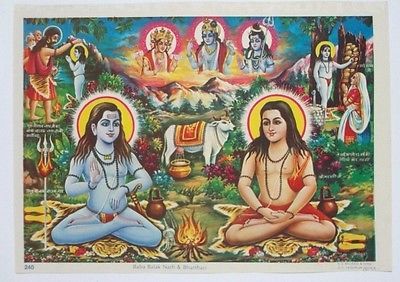
Tradition and Gurus
The Story of Raja Bhartrihari told by Swami Shivananda
Once when Raja Bhartrihari was on his throne, a great tapasvi or rishi came to his court. Bhartrihari at once got up from his seat, and prostrating himself before the Tapasvin, began to serve him in various ways. The sage being extremely pleased with the Raja’s behaviour and he gave him a fruit that could bestow immortality and peace upon the eater.
Raja Bhartrihari had a very beautiful queen of whom he was very enamoured and whom he dearly loved. He thought that the only person who deserved this fruit was his young queen and no one else, so he took this God-sent gift to her and offered it to her. This young queen, though for all practical purposes the special love of the Raja, had a paramour in the person of the charioteer who used to take her for drives now and then. She, therefore, took this fruit to him and gave it to him. Again this charioteer had a prostitute whom he loved and gave the fruit to her. Now, this prostitute thought that the only person who best deserved this fruit was Raja Bhartrihari himself, and so she took this fruit in her hands and went to the Raja’s palace and offered it to him. Raja Bhartrihari was simply mystified. He could not solve the problem as to how it could be possible for this prostitute to get the fruit that was the rightful possession of his queen. Finally, after intense thought and great deliberation, he was able to solve the problem by himself.
Just before this incident, Bhartrihari’s brother, who had come to know of the queen’s love for the king’s charioteer, had told Bhartrihari that the queen was an unchaste lady and that it was a great shame on the fair name of the royal family to keep a woman as queen in the palace when she secretly loved the king’s charioteer. But the young queen rose equal to the occasion and brought forth evidence to disprove the validity of the charge against her and was able to prevail upon the king to exile his brother from the kingdom.
After investigating the whole matter with all the talent that he could command, Bhartrihari concluded that, after all, the charge brought against his queen by his brother was valid and that the queen had fooled him into letting him take the extreme step of exiling his brother. The one who loved him so dearly and who held the name of the royal family high by zealously guarding it against insinuation and blot.
True vairagya (dispassion) immediately dawned upon the king. He now concluded that there was no one in the world who was really dear to another, no, not even one’s own wife or brother or friend. He became convinced that, in fact, these are one’s, real enemies. He felt extreme disgust for the world and its pleasures, and at once left his kingdom, wife, and children and retired into the forests to lead a life of a Sannyasin.
He did profound meditation for many years and finally attained knowledge of Self. He wrote a book generally known as ‘Bhartrihari’s Vairagya Shatakam’, or ‘the Hundred Verses of Renunciation,’ a reading of which produces immediate disgust for things mundane and induces one to renounce everything and lead the life of a recluse.
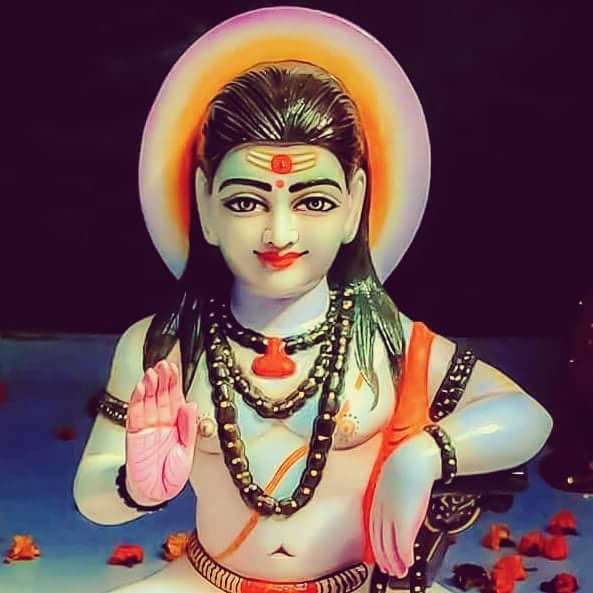
Teachings
Selected verses from Vairagya Shatakam:
- For eating, I have tasteless food once a day, after begging for alms; the earth for a bed, and my own body as a servant; for dress, a blanket made from hundreds of rags; and yet alas! Sensual desires do not leave me!
There are two stories circulating amongst the Natha Yogis, which appear connected with this verse:
- After becoming a yogi, Raja Bhartrihari was wandering around as a mendicant. The food he was obtaining was very simple, and for the King who had spent all his life in luxury, it was very disgusting. Once, he came to a city and arrived near a sweets shop. He saw that jalebis (a kind of traditional Indian sweet food) were being prepared. A strong desire to have some of the delicious food came to mind of the yogi. He asked the shopkeeper to give some of it to him, but he was answered that it was not proper for a yogi to ask about such costly food. If he wanted to get it, he should do some job to pay for it. Being overwhelmed by desire, he agreed to do some service for the shopkeeper and was told to wash utensils in the shop. After some hard work, he was given some jalebis he craved. He went to a lonely place intending to eat them, but once there, he felt intense remorse for what was done by him.
He told himself, ‘I have left my Kingly life to become free from all attachments, and now I have found myself in such pathetic conditions? What a shame!‘ Then he started throwing away the jalebis one by one and cursing himself while doing this.
- In another story, in his wanderings, he was walking along a road. It was evening time, and darkness was slowly approaching. Suddenly he saw something on the road that was shining like a diamond. He passed by and continued walking, but then a struggle of thoughts commenced in his mind. ‘If it were a diamond, then it would be very costly, and I could have many things I may desire. ‘But for a yogi, stones and gold are the same things, and I left the kingdom, so why bother?’ came the next thought. ‘But it may be good luck; why leave it? It may be God’s gift for you. So enjoy it’, the seducing voice inside his mind insisted.
Overpowered by desire and curiosity, he returned and plucked up the item. What had appeared like a diamond to him turned out to be the piece of wasted food spit by someone from his mouth after chewing. Of course, Raja Bhartrihari regretted what he had done.
- Food obtained by begging alms is not humiliating; it gives joy that is not dependent on fulfilling others’ needs and is devoid of fear. It destroys envy, arrogance, pride, impatience, and the stream of miseries. It is readily available everywhere, without great effort, and regarded as sacred by holy persons. It is like Shiva’s feeding house, ever accessible and inexhaustible. Thus do perfect yogis describe it.
- We are content to wear tree-barks for clothes, as you with rich dresses, but the contentment is alike, and the difference is not significant. He whose desires are numerous is indeed poor. But, if contentment is in the mind, then who is rich or poor?
- Winning favours of others is hard; why then does your heart seek to appease the minds of others? With inward tranquility and abstaining from social interaction, wise thoughts will arise in you spontaneously, so why wish for anything that you will not acquire?
- As long as this body is healthy and free of infirmity, as long as senility is distant, as long as the faculties have not lost their vigor, as long as life is not enfeebled, till then should the wise ones make great efforts to reach the supreme goal of life. For what is the use of digging a well when the house is on fire?
- Between the great Lord of the Universe, Shiva, and the innermost Self of the universe, Vishnu, there is no difference for me. However, my devotion is to Shiva, holding the crescent moon on His head.
- Using the hands like a bowl, content with naturally pure food from alms, resting in any place, constantly viewing the world to be worth no more than a blade of grass, experiencing uninterrupted supreme joy even before the body falls, for such aspirants alone the grace of Shiva makes the path of liberation easy of attainment.
- Wearing a loin-cloth worn-out and tattered into a hundred rags, with a wrap-around in similar condition, free from anxiety, eating food from alms begged without any expectations, sleeping in a forest or a cremation-ground, roaming freely without hindrance, ever indrawn and calm, and also established in the great joy of Divine union – for such a one even sovereignty of the three worlds is beneath comparison.
- Living on alms, unattached to the company of people, ever acting with total freedom, devoted to the path of dispassion towards the coming and going of wealth, such a one is a true ascetic. Wearing worn-out rags thrown in the streets, using a blanket received by chance for a seat, without pride or selfishness, the ascetic wishes solely for the joy of the controlled mind.
- ‘Is this person an outcast? Or a twice-born? Or a sudra? Or an ascetic? Or else some master yogi with the mind filled with philosophical discernment?’ When people address the ascetic in this way, doubting and debating garrulously, the Yogis themselves walk away, neither angry nor pleased.
- The hands serving as a sacred bowl, subsisting on the never-dwindling alms obtained while roaming, the vast expanse of the sky serving as a dress, and the earth for a stable, spacious bed—people with such dispassion are blessed indeed, for they have renounced the poverty of the attitude seeking mundane pleasures, and thus giving up worldly contacts, and inwardly content in heart, fulfilled by accepting solitude, and thus able to uproot all actions (the roots of future rebirths and deaths).
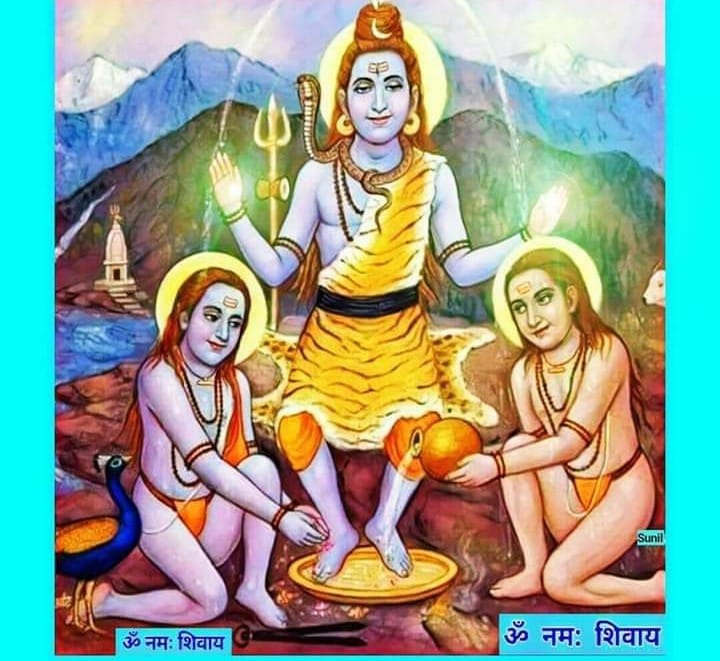
Bibliography
How to get Vairagya by Swami Shivananda, published By The Divine Life Society

